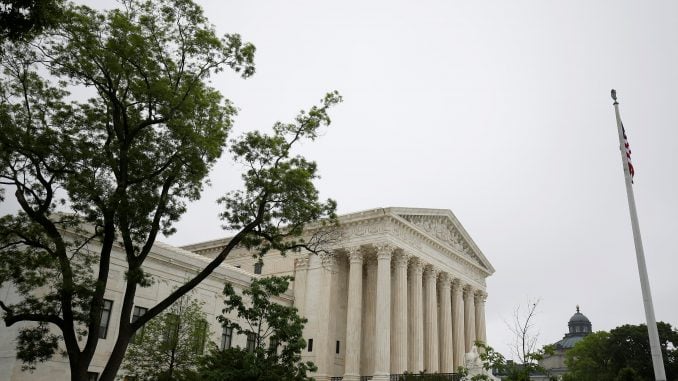
WASHINGTON, D.C. – The Supreme Court struck down a 1992 federal law on Monday that effectively banned commercial sports betting in most states, opening the door to legalizing the estimated $150 billion in illegal wagers on professional, collegiate and amateur sports Americans make each year, an enticing new revenue stream for state budgets that have been pressured by years of slow economic growth.
Now a handful of U.S. states are in position to capitalize quickly on the court’s decision to will allow New Jersey to legalize sports betting, and more than a dozen others could follow suit before long.
Five states – Connecticut, Mississippi, New York, Pennsylvania and West Virginia – already have sports betting laws in place that would allow them to move quickly following the Supreme Court’s decision, according to Fitch Ratings. Fourteen others have introduced sports-gaming legislation in recent legislative sessions.
“This new opportunity for states may result in 2018 being the single largest year for gaming expansion,” S&P Global Ratings said in a report released after the ruling.
The high court’s ruling did not legalize sports gambling nationwide, but instead paved the way for states to pursue it as they wish. The result is likely to be a patchwork of distinct state regulations and programs, and outside of New Jersey, will not happen immediately.
“It’s going to take years. Every state obviously is different. It’s not something that happens overnight,” said Irwin Kishner, who practices sports law in New York.
Ronald Rychalk, a University of Mississippi law professor and member of the editorial board of The Gaming Law Review, noted that there many intersecting interests who either strongly support or oppose the idea of sports betting, which is why “there will be lots of compromising and politics surrounding the decisions at a state level.”
Also, he stated, “there are so many layers to this. The [professional sports] leagues and the NCAA have come out against the ruling, but there is some scrambling going on right now to see what slice of the proceeds they could potentially get.” Much of this, he said, would go to cover the supervisory and regulatory structures that would need to be in place before anything could legally move forward.
Rychalk sees outcomes that will likely be specific from state to state, based on locations of strong collegiate sports programs and the presence of professional teams.
In North Carolina, for example, with both robust college sports rivalries and professional teams, there are multiple possibilities in legislating statewide sports gambling.
Depending on demand, revenue projections, and input from the NCAA and pro leagues, “there could be a split scenario that could allow betting on professional sports, but not college games, for example,” he said.
Some analysts cautioned that expectations for massive windfalls for states were overblown.
Emily Raimes, a Moody’s Investors Service analyst, said in a statement that state and local governments could “see minor benefits from the incremental tax revenues.”
How much any state benefits from the shift will depend on an array of complicated factors.
One big hurdle that could slow implementation is conflict between sports leagues and the casino industry over an “integrity fee” that would give the leagues themselves a portion of the bets taken, said Daniel Wallach, a Florida sports and gambling attorney.
States in which Indian tribes control or heavily influence casino development may also move more slowly, including Connecticut and Florida.
In Connecticut, for instance, two tribes said they would have exclusive rights to run any authorized sports betting operations.
Connecticut Governor Dannel Malloy said after Monday’s ruling that he was prepared to call the legislature into special session to consider how to proceed.
Some state constitutions also require voter referendums to legalize sports wagering. New Jersey voters overwhelmingly approved it back in 2011.
Political opposition is also sure to persist. The Stop Predatory Gambling nonprofit group said New Jersey’s cause was a “naked money grab … cloaked as a ‘states’ rights’ case.”
Reuters contributed to this report.



